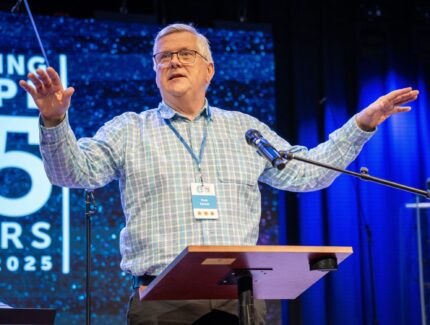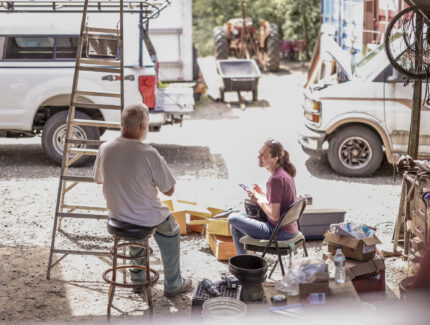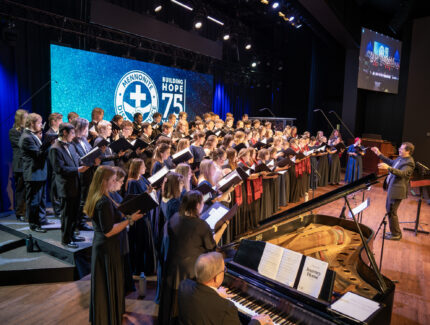
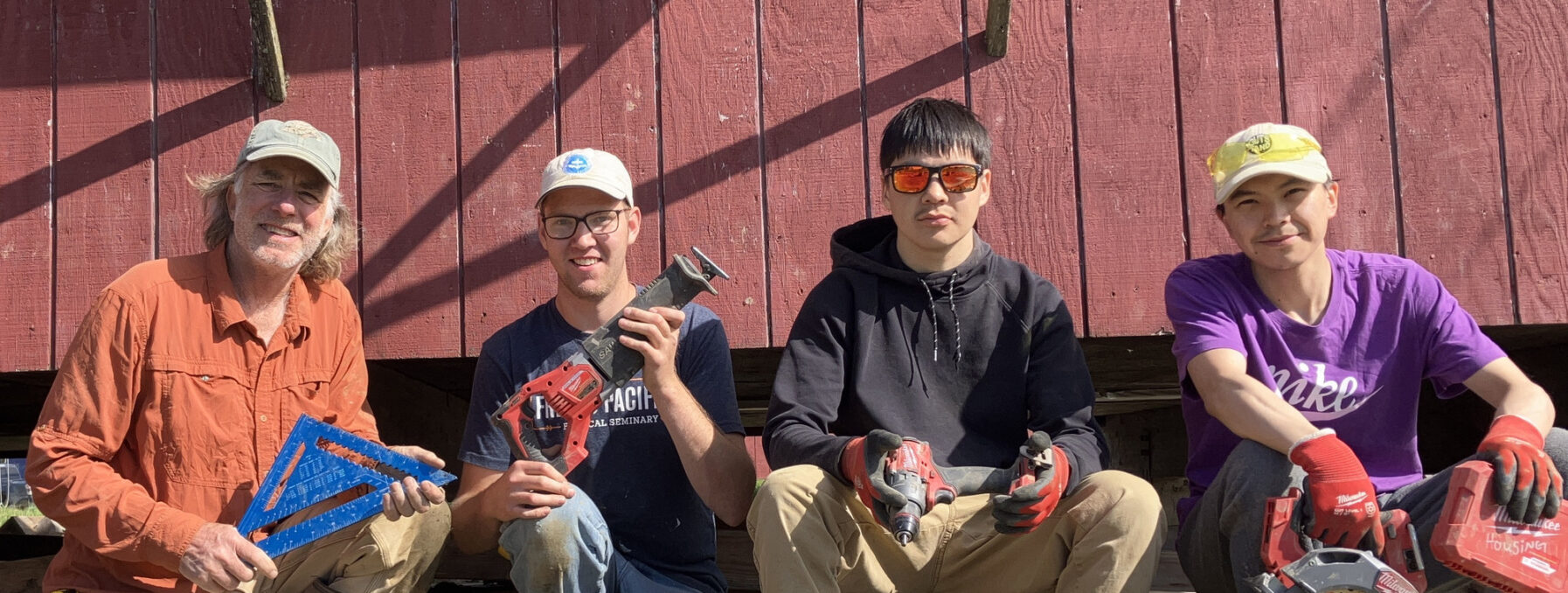
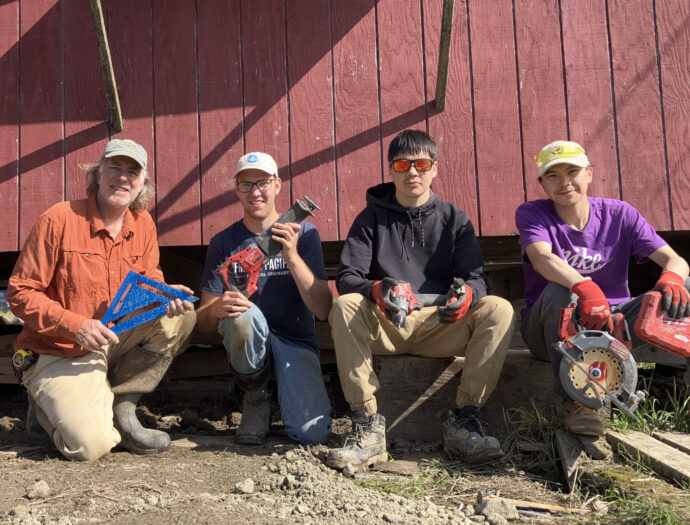
October 8, 2025
Hope amid hardship: MDS works in remote Alaska village
Volunteers help rebuild storm-hit Toksook Bay
Pictured: Typhoon Merbok Response 2025 Toksook Bay, Alaska
Robert Pitka thinks of MDS volunteers as good workers—and good listeners, too. The tribal administrator for Toksook Bay, home to about 700 people in western Alaska, Pitka recalled when the tribal council first considered inviting MDS to help repair homes in the Nunakauuariut community, who maintain a predominately traditional diet from fishing, and hunting caribou and moose.
“The MDS volunteers were very punctual,” Pitka said. “They were always there, and they were all great— young and old.”
Pitka noted the volunteers’ strong willingness to be open listeners. “The mutual friendship was just open,” he said. “It was great, and I could tell their interest in wanting to know more about our lifestyle—stuff like Eskimo dancing, or even going fishing.”
He expressed deep appreciation for the volunteers. “We even provided them a vehicle so they can tour the hills, the trails, and the coastline, and they enjoyed it,” he said. “But I think their main focus was a lot of work to do!”
Ultimately, the MDS volunteers did more than the tribal council expected. “Next season, next year, we are still looking forward to working with the Mennonites again,” said Pitka.
Life in Toksook Bay
In September 2022, Typhoon Merbok tore through Alaska’s western coast, pushing homes off their foundations and tearing apart protective berms as water flooded coastal communities. The storm impacted hundreds of miles of coastline, damaging hunting and fishing camps, and exacerbating permafrost degradation.
The MDS Alaska Unit has worked with a number of Typhoon Merbok-affected communities, most recently Toksook Bay, located on Nelson Island on the Bering Sea.
Two teams of four MDS volunteers each stayed in Toksook Bay for four weeks for the response, which ended on August 1.
“Twenty-one job cards were completed,” said Gary Martin, MDS Alaska Unit chair. “This included repairs to roofs, leveling sinking foundations, working on the wiring of seven new homes, and a washateria—a place to wash clothes and cafeteria.”

Unique challenges
There are quite a few challenges in the Toksook Bay area, and the first is the village is off the road system—514 miles by flight.
“Only barges and airplanes access the coastal villages,” said Martin. “There is no hardware or supply store, lodging is at the local school, only ATVs are used around town, and it takes a week or more to bring in needed supplies or tools.”
People in western Alaska face hardships that outsiders often cannot understand. “Home foundations are a post sitting on a pad,” said Martin. “Because of global warming, the permafrost is thawing and homes are sinking.”
Houses may look in bad shape because it takes so long for supplies or workers to come if a community can’t provide their own.
The people of Toksook have a subsistence economy, with camps set up to get the food they need. “It could be right in the middle of a project that local people helping might just leave because it is now moose hunting, berry picking, or fishing time,” said Martin. “They rely on this way still to survive.”
Walking and working together
MDS worked in partnership with the Toksook Bay Long Term Recovery Group, which was created in the wake of Typhoon Merbok.
“I think the best way to describe our work there is that we worked alongside of, and took direction from, the people in Toksook,” said Elroy Holsopple, MDS project coordinator. “It took a little bit more background work on my part because we did not have access to grocery stores, hardware stores, or lumber yards.”
A lot the work involved leveling houses, and ensuring the homes were on firm foundations. “We also replaced roofs, replaced kitchen sinks, and bathroom sinks, things like that,” he said.
While they worked, MDS volunteers helped local people develop their house repair skills.
“I think the relationships we built with local workers were key to our success there,” said Holsopple.
The construction season in Toksook Bay is very, very short: by September the weather becomes bad enough that it’s no longer construction season.
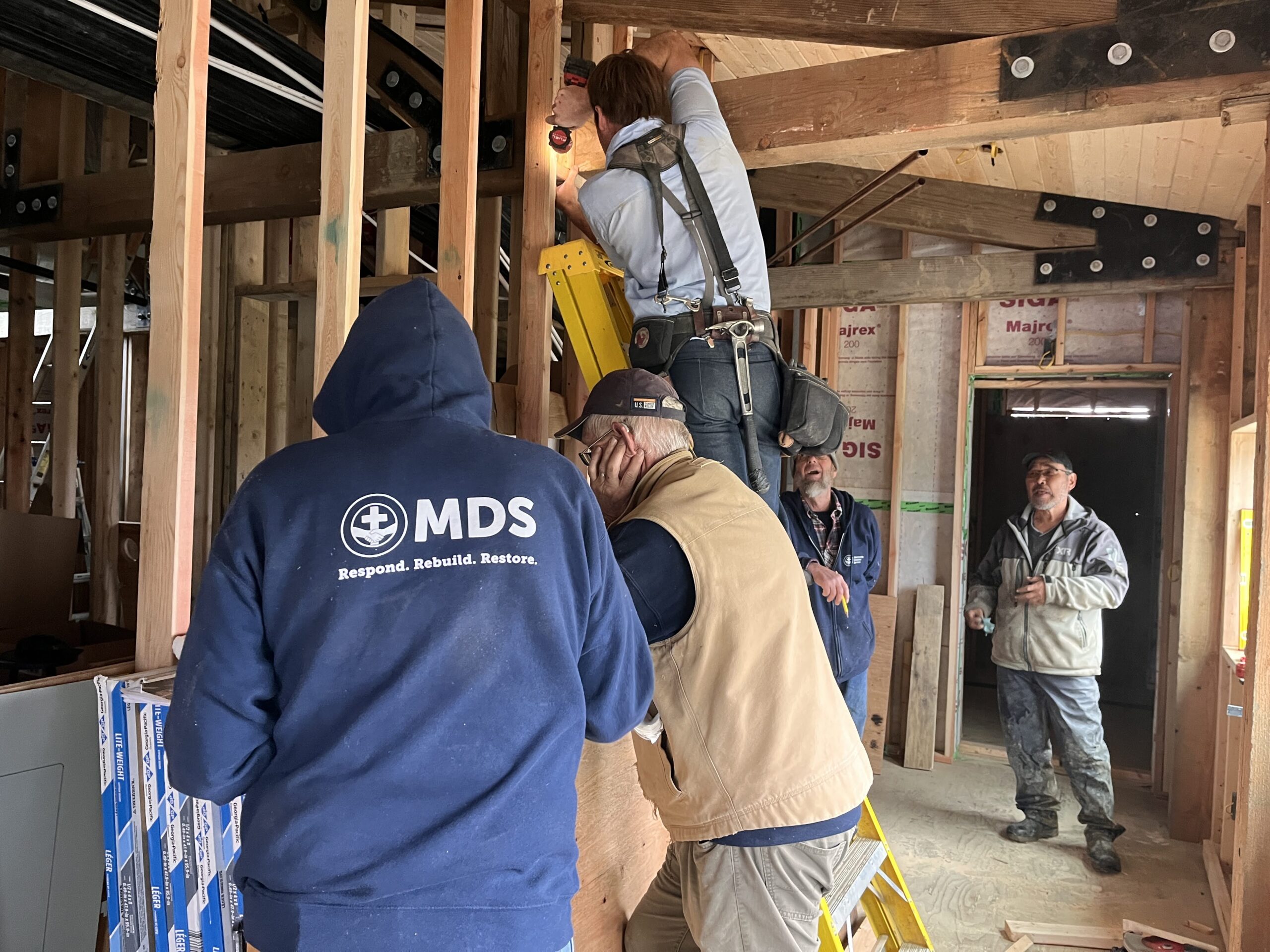
“Already good”
Volunteer Scott Cloverdale wrote a reflection on one homeowner, named Mary, whose bathroom had no toilet, sink, or shower.
“She showed us the kitchen, which was also just a space where there had once been a kitchen,” wrote Cloverdell. “She told us quietly about her son, who had lost himself in the darkness of drugs.”
In a rage, her son had torn up the house and later met an early death.
“MDS typically steps into work that addresses natural disasters,” wrote Cloverdell. “In this case, we stepped into a household that had suffered a different kind of trauma.”
The work to-do list was fairly long at Mary’s house.
“I checked in with Mary to see how she was feeling about the progress and the
remaining work,” wrote Cloverdell. “Her husband was out fishing, but her niece and two kids played in the floor.”
Mary said: “I am thankful for all of your help.”
Cloverdell said: “Ah, we have a ways to go, but hopefully by next week we’ll get some parts that we need to finish.”
“You don’t understand me,” Mary said. “We are already grateful because things have begun to change that we didn’t think would ever change. It is already good.”
Susan Kim, MDS Writer

